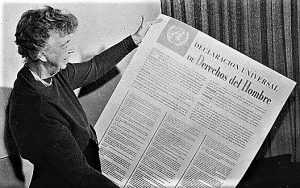Positive law
Positive law is a set of legal and juridical rules that act with vigor in a given State, at a given time, it does so independently of the sources that come from, it is provided by the competent bodies for this function. It is the system of coercive rules, which governs or governed social coexistence at a given time. When one speaks of positive, one mentions someone who establishes it. The laws of positive law are pronounced by an administration in order to achieve a certain objective. Depending on the law, this type of right may or may not have an expiration date. In addition to considering all types of law as positive law, legal regulations written in decrees or regulations are also part of positive law.
What is positive law?
Positive law is the set of legal rules governing a particular state or place, which are dictated by competent bodies with the sole aim of achieving a particular end. Everything that is written in regulations or decrees is part of positive law.
Positive law characteristics
- Positive law is a type of law that is expressed, and its existence cannot be discussed under any aspect. The right may be the subject of discussions and regulations, but it can never be denied.
- Each country has its own positive right so it can be said that it is an individual right.
- It is formed by a set of mandatory aspects that are established by the authority in charge of the people in the political aspect and is given in a certain period of time.
- Compliance and enforcement of positive law can happen spontaneously, and when it does not, then it can be coercively imposed on the community, people or country.
- It has relativity, which means that the law is not enclosed only in certain norms, but that it has the capacity to be transformed over time influenced by the political, economic, social and cultural conditions of the region where it is applied, seeking justice as its main goal.
- It is created by the will of man, can be temporary and has the option to change when needed, so sometimes, is catalogued as an imperfect right.
Positive law history
Positive law finds its basis in iuspositivism, which refers to a philosophical and juridical current that thinks that the only valid right is the one that the human being has created since he is the creator of the State and it is the one that has constituted the powers over which sovereignty and law will govern. It emerged in the nineteenth century based on two different schools of the time, the Exegesis School located in France and the Dogmatic School that was located in Germany. As for the social part of law, the Social School created by Raymond Saleilles in France, was the source of the bases and the Free Law Movement, both during the 19th and 20th centuries.
Principles
- Good faith principle which requires the individual to maintain good conduct and honesty with parties who have an interest in a particular act or process. Acting with honesty, loyalty and truthfulness the individual will be acting in accordance with the legal system.
- Principle Pacta sunt servanda contemplated in the Vienna Convention, and which explains that every treaty that enters into force obligates the parties, and that it must be complied with by them in good faith.
- Post-factum principle and ante-factum solidarity, which refers to the union of interests that may exist between countries and their social cohesion.
- Principle of Humanitarian Aid, which is a type of solidarity aimed mainly at countries or places with scarce resources or which have been victims of a humanitarian crisis, whether due to war or natural catastrophes.
- Principle of intervention and non-intervention. When we speak of intervention, we refer to the countries’ or states’ right to intervene in international internal affairs with other states. Non-intervention is the opposite, indicating to a country that it should not intervene in specific matters of a particular country.
Positive law classification
The positive law can be of two types: current or not current. The current law is responsible for effectively governing the coexistence of society in a given place, for example, a country’s penal codes with respect to crimes committed by criminals, homicide and robbery. The non-current law has no application within the social sector and can be subdivided into two parts, the current one which refers to a law that has been made, but has not been implemented, and the historical one, which are rights dating back to antiquity.
Examples
In Paraguay, positive law is the doctrine that constitutes the legal source that only intervenes to work when there are no positive ordinances on some law that manages to solve a certain case, since it cannot stop judging. In Mexico, positive law is governed by Political Constitution; it is the law that has been approved by media and diffusion channels, through which one right can be substituted by another and at that moment cease to be a positive right and become a historical antecedent of a legislative nature.
How to cite this article?
Briceño V., Gabriela. (2019). Positive law. Recovered on 4 May, 2025, de Euston96: https://www.euston96.com/en/positive-law/










